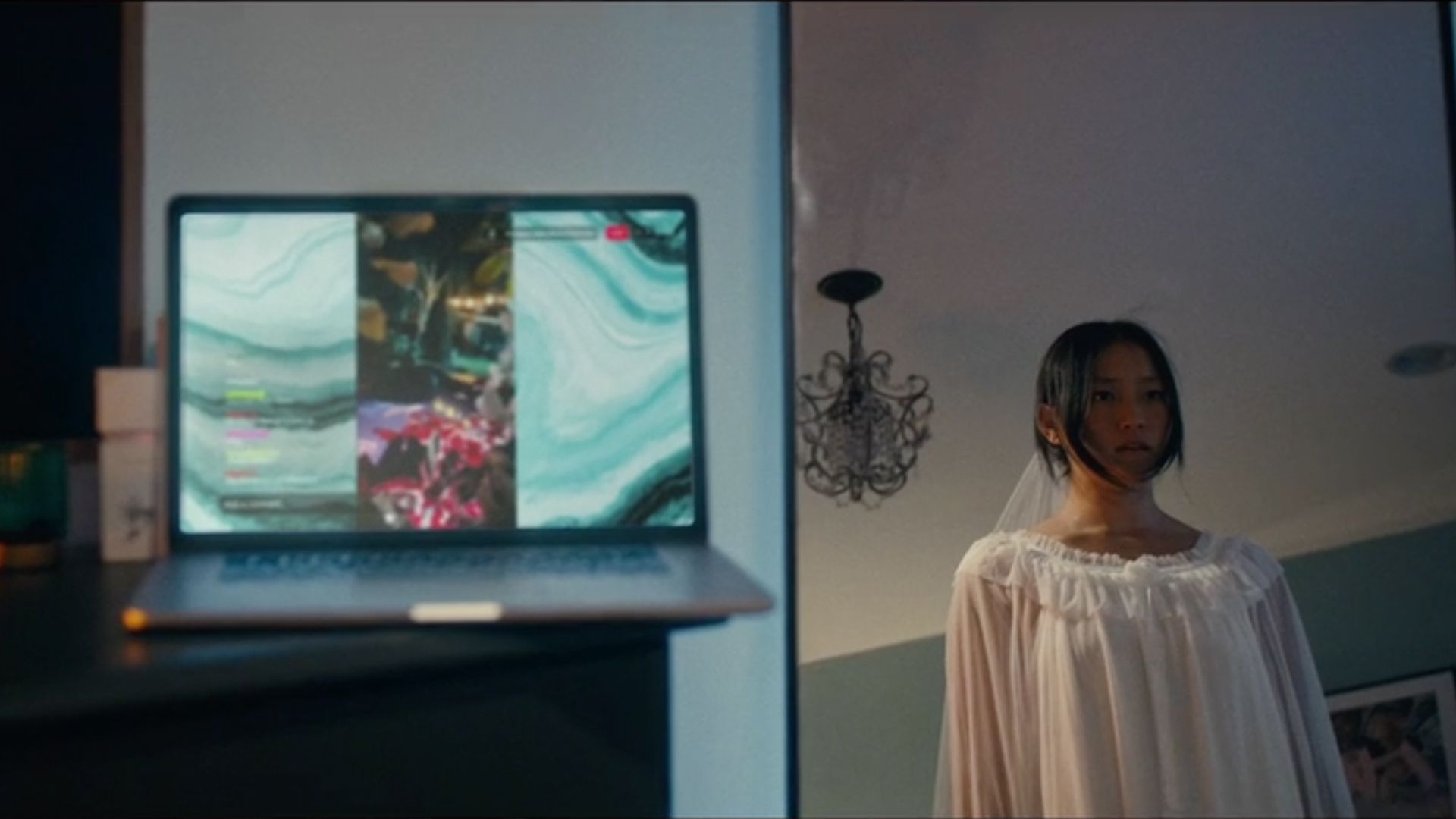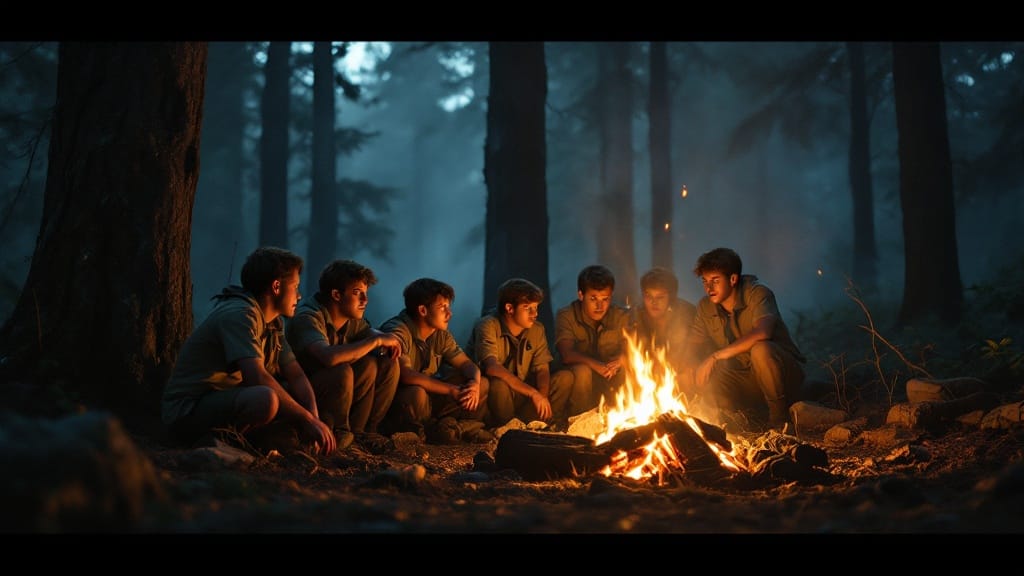Drama
Perchance to Dream

Directed by Michel Knowles
Warning – This review may contain spoilers.
Perchance to Dream grabbed my attention right away with its creative blend of modern technology and classic Shakespearean tragedy. The film tells the story of a Shakespeare-obsessed stalker who live-streams his break-in at the home of a woman he’s fixated on. The idea of using an Instagram Live format to narrate a crime adds a uniquely disturbing layer to the story, making the viewer feel like a bystander to the madness unfolding in real-time. As the stalker wanders through the house reciting Shakespearean verses, I found myself immersed in the eerie blend of high art and slasher vibes.
The technical aspects of Perchance to Dream are striking. The use of vertical video editing to mimic a live stream is clever, and the cinematography felt true to the concept. There’s something unsettling about watching a phone-filmed home invasion, as it creates an intimacy that draws the audience into the protagonist’s warped mindset. The lighting, especially, stood out to me. It effectively created mood and tension, with the contrast between soft bedroom light and the shadowed figure of the intruder heightening the sense of danger. Sound design was also well executed, with clear dialogue and subtle background noise that felt immersive. However, there was a noticeable transition back to traditional filmmaking toward the end that felt somewhat jarring. Maintaining the live-stream style for a bit longer would have helped sustain the tension.
What I appreciated most about Perchance to Dream is the way it connects Shakespeare’s words to the modern-day madness of its protagonist. There’s a fascinating dissonance between the beauty of Hamlet’s language and the horror of the intruder’s actions. His obsessive need to recite lines from Shakespeare while committing a violent crime speaks to how easily art can be warped into something grotesque. The idea of turning Hamlet into a figure who lives in the toxic echo chambers of the internet is both unsettling and, strangely, believable. The use of live-stream comments as a narrative device also adds a clever touch, making it feel like a performance for an invisible audience that’s complicit in the stalker’s actions.
That said, the story itself felt thin in some areas. While the concept is strong and the technical execution is impressive, the film doesn’t delve deeply enough into its characters, particularly the woman being stalked. She wakes up and takes action, but we never really get to know her beyond her role as the victim. Her character feels underdeveloped, which lessens the impact of the final confrontation. I found myself wanting more insight into her story and her perspective.
Despite the minor flaws, I think Perchance to Dream is a compelling and original short film. The combination of Shakespearean tragedy and modern-day stalking offers a fresh take on both genres, and the film’s creative use of live-streaming technology makes it stand out. The ending, while not completely satisfying, does deliver an unexpected twist that left me thinking about the blurred lines between performance, reality, and obsession. For viewers who appreciate experimental filmmaking and are fans of Shakespeare, this film offers a unique experience worth checking out.
Perchance to Dream succeeds in creating an unsettling atmosphere with its innovative use of format and Shakespearean obsession, even if the narrative could have been more fleshed out. It’s a bold piece of filmmaking that lingers in the mind, leaving audiences to contemplate the darker side of art and technology.
Comedy
Troop 458

WARNING! This review contains SPOILERS!
Troop 458, written by Trevor Allen, captures the often daunting, yet transformative, experience of being the new kid in a world full of unknowns. We follow Sidney, an anxious boy thrown into his first Boy Scouts campout, where he faces both the perils of acceptance and the strangeness of his eccentric scout leader. As spooky campfire tales start to weave into reality, Sidney is forced to confront his fears head-on, finding moments of humor, adventure, and unexpected camaraderie along the way.
I like the concept of Troop 458 because it blends coming-of-age themes with a playful sense of adventure, all wrapped in an atmosphere tinged with just the right amount of mystery. Allen’s writing brings to life a cast of memorable characters, especially through Sidney’s journey of growth. The tension between humor and fear feels authentic to the Boy Scouts’ setting, and it captures the real challenges kids face when trying to fit in.
What resonated with me most was the screenplay’s exploration of courage—not just in facing mythical dangers but in embracing who you are, quirks and all. Some aspects could benefit from a clearer focus on character motivations and tighter pacing to keep the momentum strong, particularly during scenes that blur the line between myth and reality.
The dialogue is great in many places, offering humor that feels natural for a group of young scouts. There were moments where I felt the conversations could be a bit sharper or more distinct to heighten the comedic or emotional impact. Character development is a strong suit, with Sidney’s evolution being both relatable and satisfying, but secondary characters could have a bit more depth to elevate the ensemble.
Allen’s Troop 458 is polished, with solid grammar, spelling, and formatting that adhere to professional standards. The structure is clean and makes for an easy read, setting up scenes that are visually compelling.
Troop 458 delivers an enjoyable mix of humor, heart, and a touch of the supernatural, leaving me eager to see how it might come to life on screen.
Drama
Ellie

WARNING! This review contains SPOILERS!
Directed by Marcus Mejia
Ellie is a refreshing experience that pulled me right into the world of a young, shy man navigating a work meeting while secretly yearning for a bit of magic in his everyday life. We’re taken through his imaginative, musical daydream—a beautiful escape from reality that reveals his true desires. I loved how the film peeled back layers of his personality without a single word of dialogue. Instead, the music carried the narrative, and surprisingly, it worked so well.
Marcus Mejia did an excellent job blending dramedy elements to keep the film engaging. The moments of humor and more emotional beats make the film feel well-rounded. Mejia’s choice to swap dialogue for music was a bold move, and it paid off. I could feel the character’s internal struggles and hopes as the music brought out emotions words couldn’t.
The lighting felt intimate, almost like it was giving us a window into the protagonist’s soul, and the cinematography perfectly captured the whimsical tone of his daydreams. I noticed how smoothly the editing transitioned between reality and fantasy, which made the story’s pacing feel just right. The sound design was on point, with every beat of music syncing beautifully with the character’s emotional highs and lows.
I loved when the protagonist’s daydream overlapped with reality, creating this seamless blend that felt so relatable. I admired how it portrayed the quiet, unspoken dreams we all carry. It was a reminder of the power of our inner worlds and how much magic lies just beneath the surface of our everyday lives.
Ellie left a gentle yet lasting impression. It’s a unique, heartfelt short film that shows how creative risks can pay off. Ellie is a memorable journey that’s definitely worth the watch.
Drama
Finding Acceptance

Directed by Andrew DeBennett
WARNING! This review contains spoilers.
Watching “Finding Acceptance” was an experience that brought me back to those anti-bullying films we’d see in school assemblies. The story follows Mary, a new student in a wheelchair, navigating the often-tough world of school friendships. Initially, she faces teasing from her peers but finds a genuine friend in Liz, who even manages to extend kindness to Mary’s bully, Max. The message is straightforward and clear: acceptance and empathy matter.
I could see what the director was aiming for—Andrew DeBennett notes that the film was both a joy to create and a personal project. The heart of the story shines through, with Kaylah Pollock (Mary) and Laney Hansen (Liz) bringing warmth to their roles. Their connection feels genuine, even if the overall story feels a bit too familiar.
Technically, the film could have used some fine-tuning. The sound mix was rough, with the music often drowning out dialogue. The editing also felt choppy, making it harder to stay immersed in the story. The dialogue leaned into clichés—phrases like “loser” felt outdated and took away from the realism. The cinematography, however, was a bright spot, creating a warm, inviting feel that suited the film’s positive message.
I felt like the story could’ve benefited from more depth. The bullying that Mary faces is minimal, making her eventual friendships feel somewhat predictable. For younger audiences, this simplicity might be engaging and easy to digest, but it misses the chance to delve into the more complex aspects of acceptance.
In the end, “Finding Acceptance” delivers a positive, albeit simple, message. While it didn’t connect with me on a deeper level, I can see it being a useful film for educational settings, especially for younger viewers learning about kindness and friendship.










